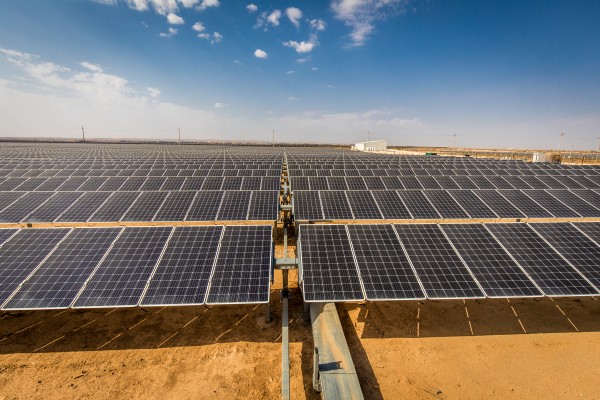On the occasion of COP26, where world leaders discuss the urgent actions needed to avoid catastrophic climate change, FMO has committed to the Statement on International Public Support for the Clean Energy Transition, initiated by the UK government.
Signatories will pursue international public support towards the clean energy transition and out of unabated fossil fuels. Further, signatories agree to end new direct public support for the international unabated fossil fuel energy sector by the end of 2022, except in limited and clearly defined circumstances that are consistent with the 1.5°C warming limit and the goals of the Paris Agreement.
The Statement on International Public Support for the Clean Energy Transition is in line with FMO’s Position Statement on Phasing Out Fossil Fuels published and effective in June 2021 (updated in January 2023). This Position Statement sets out FMO’s firm commitment to end the financing of fossil fuels in direct investments except in exceptional circumstances with clear criteria consistent with the goals of the Paris Agreement.

Our commitment to the Statement is also driven by its emphasis on supporting the clean energy transition. Energy is a driver for development and growth. Currently, over 840 million people across the world do not have access to electricity. As stated in FMO’s Position Statement, it is our priority to actively seek direct investment opportunities that support low-carbon economic growth in our countries of operation, including renewable energy and new technological developments.
We encourage our peers and counterparts to take these steps with us and look forward to working together with other signatories to make the energy transition a just and speedy one to reach our common goal of achieving the 1.5°C warming limit.
Michael Jongeneel, CEO at FMO said: "Achieving the climate goals is not an option but a necessity, especially for developing countries that are affected the most by climate change. Every company, every organization and every person should take responsibility in this. We are committed to financing renewable energy and reducing inequality; and will encourage others to do the same."
Please see below for the full statement.
___
Statement on International Public Support for the Clean Energy Transition
On the occasion of COP26, we the [undersigned] commit to the following actions to align our international public support towards the clean energy transition and out of unabated fossil fuels. Our joint action is necessary to ensure the world is on an ambitious, clearly defined pathway towards net zero emissions, that is consistent with the 1.5°C warming limit and goals of the Paris Agreement, as well as best available science and technology. These measures will help stimulate sustainable, resilient and inclusive economic development globally, and support a just transition for affected communities:
- We will prioritise our support fully towards the clean energy transition, using our resources to enhance what can be delivered by the private sector. This support should strive to “do no significant harm” to the goals of the Paris Agreement, local communities and local environments.
- Further, we will end new direct public support for the international unabated fossil fuel energy sector by the end of 2022, except in limited and clearly defined circumstances that are consistent with the 1.5°C warming limit and the goals of the Paris Agreement.
- We will encourage further governments, their official export credit agencies and public finance institutions to implement similar commitments into COP27 and beyond. This includes driving multilateral negotiations in international bodies, in particular in the OECD, to review, update and strengthen their governance frameworks to align with the Paris Agreement goals. For government signatories, this will also guide our approach on the boards of multilateral development banks.
In committing to the above, we furthermore recognise:
- the findings of the Intergovernmental Panel on Climate Change (IPCC) and IEA net-zero analysis show that in the pathways consistent with the 1.5°C warming limit of the Paris Agreement, the global production and use of unabated fossil fuels must decrease significantly by 2030;
- that the accelerated alignment of international public and private sector financial flows is critical to driving energy transitions, energy access and supporting the development of both emerging and existing clean technologies, improving livelihoods and employment prospects worldwide;
- the progress, driven in part by enabling public finance investments, in reducing the costs of clean energy alternatives such as solar and wind power to become cheaper than unabated fossil fuels in almost every region of the world, revolutionising and transforming energy options and access;
- that investing in unabated fossil-related energy projects increasingly entails both social and economic risks, especially through the form of stranded assets, and has ensuing negative impacts on government revenue, local employment, taxpayers, utility ratepayers and public health;
- the devastating impacts of the COVID-19 pandemic and the need to recover better and greener for a sustainable economic recovery that saves lives and improves livelihoods.


